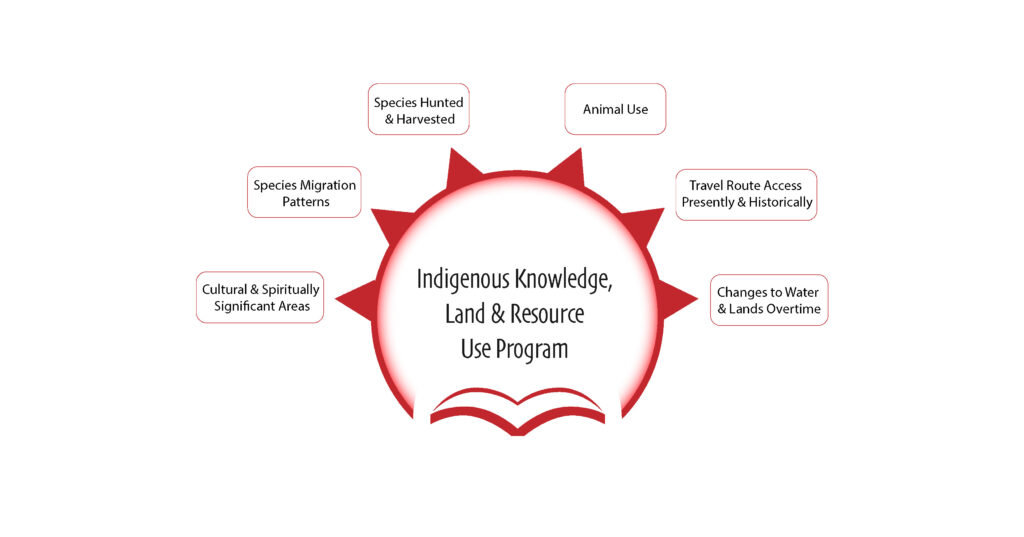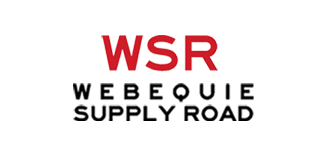What information are we collecting and why?
We will be looking for knowledge about the natural environment (e.g., locations of caribou seasonal use and calving areas), the relationships between environmental changes and species or ecosystems, and how potential effects to the environment can be avoided or minimized. Some examples of information that may be gathered include:
- Patterns of species migration and areas frequented;
- Areas of cultural and spiritual significance;
- Quantity and quality of species hunted and harvested;
- Uses of animals hunted and harvested;
- Access to travel routes both historically and presently; and
- Changes to water and lands over time.
The IKLRU Program may provide insights on the following aspects of Project:
- Project design – location of important sites that should be avoided;
- Baseline data collection – trends in health of important species;
- Valued components – values of importance to the community;
- Study boundaries – understand where impacts might occur and over what time period;
- Mitigation measures – understand ways impacts might be reduced and benefits enhanced; and
- Monitoring programs – how the project should be monitore
How are we collecting the information?
- Phase One: Collecting existing Indigenous Knowledge and information on Indigenous Land and Resource Use that communities are prepared to share with Webequie First Nation and WSR Project Team to help inform the early stages of the assessments; and
- Phase Two: Completing project-specific Indigenous Knowledge and Lands and Resource Use studies, or compiling information/data in other forms (such as maps, reports, etc.), that can be provided to the Project Team for integration into the assessment.
What is the Indigenous Knowledge (IK) / Indigenous Land and Resource Use (IKLRU) Program?
Webequie First Nation (WFN) is conducting an Indigenous Knowledge / Indigenous Land and Resource Use Program for the Webequie Supply Road (WSR) Project. This Program is available to communities potentially affected by the Project. A Socio-Economic Program for the Project is also available to potentially affected communities. The Socio-Economic Program is focused on the community’s overall well-being in relation to social and economic factors.
Indigenous Knowledge is an important aspect of understanding how a community might be affected by a proposed project. Although there is no single definition, Indigenous Knowledge is usually understood as the body and the systems of knowledge a community has built up through generations of living in close contact with the land. Webequie First Nation describes language, traditional cultural activities, and ancestral knowledge passed down from elders, as part of Indigenous Knowledge.
Information gathered through the IKLRU Program will be used alongside scientific approaches to increase our understanding of how the Webequie Supply Road Project may affect the environment and the communities potentially affected by the Project. Both knowledge systems will be given equal consideration in informing the existing environmental, social and economic conditions in the communities and in predicting potential Project effects, including potential impacts to inherent Indigenous rights and interests.



